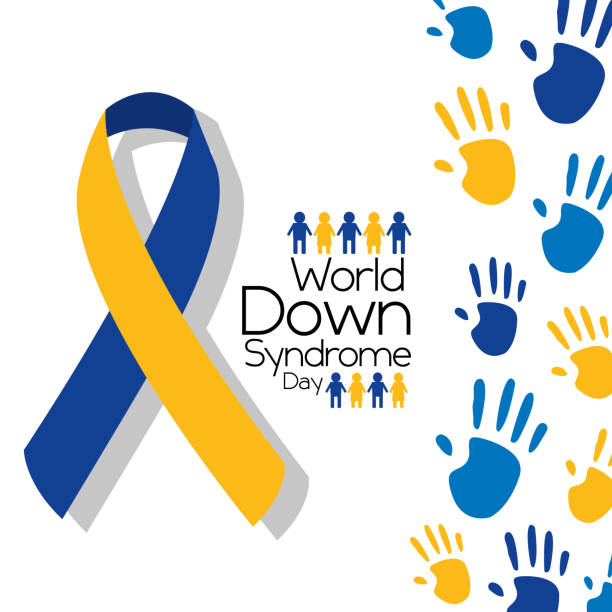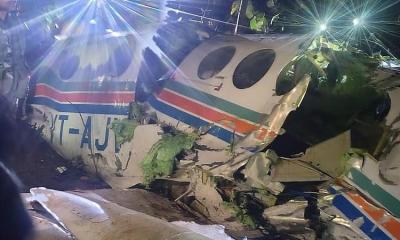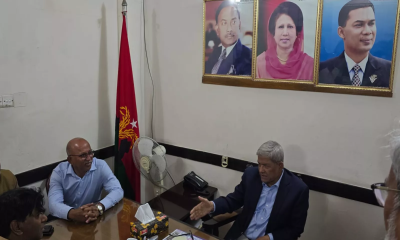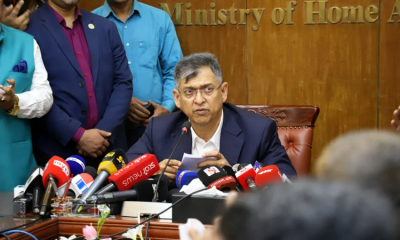Zaheda was rushed to a private clinic in Chandpur district's Shahrasti upazila on May 24 last year.
The 24-year-old has Down Syndrome, and due to the genetic disorder, she has speech impairment. Her lean body and deformed limbs obstruct her physical development and mobility.
However, these were not the reasons why she was taken to the hospital.
The doctors at the clinic found that Zehada was 36 weeks' pregnant and she would require a caesarean section for safe delivery of her child. She was not married and could not tell how she got pregnant because of her impaired speech.
Zaheda used to live with her elder brother, Manik Mia, a rickshaw puller. Her parents were dead.
Manik said his sister used to stay at home all day, but sometimes she used to go for walks in the village. He thinks she might have been raped during one of her excursions.
"Everybody used to treat my sister with sympathy. I never thought someone could be so vile as to do this to her," said Manik.
On May 25, Zaheda was transferred to Cumilla Medical College Hospital where she gave birth to a healthy baby boy. She got some financial and medical assistances from Down Syndrome Society of Bangladesh (DSB).
A case has also been filed seeking protection for Zaheda and her child. She is now staying at her village home in Noagaon of Shahrasti and is fully dependent on the help from organisations like DSB.
Zaheda is one of the thousands of people with Down Syndrome in Bangladesh. They are some of the most marginalised and vulnerable groups of the country.
Due to lack of education, inaccessible health care and lack of rehabilitation efforts, they often become victims of exclusion, abuse and live a miserable life.
People with DS show delayed physical and linguistic development, characteristics facial features such as small chin, large tongue, slanted eyes etc. and mild to moderate level of intellectual impairment.
They may also suffer from various gastro-intestinal conditions, cancer and heart diseases.
According to Bangladesh government's ongoing Disability Identification Survey (DIS), so far, 4850 people have been identified with DS in Bangladesh.
Experts, however, say this data is highly unreliable.
Sarder A Razzak, chairman of DSB said, "We have found many people with DS who have been identified as persons with autism or cerebral palsy or even as intellectually disabled in DIS. There are also many people in the remote areas who are left unidentified."
Professor Dr Gopen Kumar Kundu, chairman, department of paediatric neurology of Bangabandhu Sheikh Mujib Medical University Hospital (BSMMU) said, "It is true many people are left undetected and many have been detected wrongly.
"This is because we have a shortage of trained doctors and health workers who have technical knowledge on disability identification. Our training programme is ongoing and we hope that we shall be able to fill up this shortage in the near future," he added.
Prof Kundu is also a deputy director of BSMMU's Institute of Paediatric Neurodisorder and Autism and a deputy director of the autism cell at the health ministry.
Medical procedure to detect these children called Karyotype test is also very expensive and rare in Bangladesh. At present, this test is being done only in BSMMU and Dhaka Medical College Hospital and in a few top private laboratories in Dhaka.
As a result, children with DS are being diagnosed mostly through observance of their physical features during DIS, said Prof Kundu, also a deputy director of BSMMU's Institute of Paediatric Neurodisorder and Autism.
There are various legislations such as Persons with Disability Rights and Protection, 2013; The Children Act, 2013; Protection of Persons with Neuro-Developmental Disability Trust Act, 2013 to ensure full inclusion of children with special needs----particularly those who have neuro-developmental conditions such as DS.
Bangladesh is also a signatory and ratifying state party to the Convention on the Rights of Persons with Disabilities (CRPD) which mandates full rights and dignity for persons with disabilities.
But enforcement of these legislations for people with DS is far below the expectations.
Sarder A Razzak, chairman of DSB, said, "Many children with DS show very mild intellectual impairment. Many of them are very good at cultural activities. However, most of the schools do not enroll these children."
"Few schools in Dhaka that are currently allowing mild DS children do not have trained teachers and other support staff such as psychiatrists, therapists and caregivers. Even parents of non-disabled students often instruct their children not to sit or make friends with their classmates with DS.
"So, we often have no way except enrolling our children at special schools," said Razzak, who has a child with DS.
Bangladesh government's Neuro-Developmental Disability Protection Trust (NDDP) has been formed in 2014 to ensure social inclusion of these children.
Its performance is severely hampered due to lack of manpower. Currently, it has no permanent staff and all of its 15 posts of officers and other support staff are vacant.
Professor Dr Md Golam Rabbani, chairman of NDDP trust said, "We are in the process of recruiting five people within the next fiscal year. Our goal is to open resource centres at every divisional city where parents, teachers and caregivers will be trained. We will also publish academic and recreational contents for children with neuro-developmental disabilities."
"We will establish two shelter homes for orphans with neuro-developmental disabilities. But, execution of all of these plans are being delayed due to lack of manpower. Our high-ranking officials also get transferred frequently which also affect our performance," said Dr Rabbani.
Currently this organisation has training programmes for teachers and parents only in Dhaka with the help of experts.
However, Professor Dr Rabbani thinks their biggest obstacle to ensure inclusion comes from the society.
"Our society is not ready to include and recognise these people. Even reputed institutions, highly educated professionals show utter disdain towards these children. They cannot even imagine that these children can be educated in the same classroom with other students. By expanding our activities to the grassroots level, we need to change this perception," he said.
Professor Dr Gopen thinks that early detection and treatment can ensure inclusion of children with DS.
"If children with DS can be detected early, they can be taught language and mobility within three years with the help of doctors, speech therapists and occupational therapists. If this can be done within three or four years and medical care for other health complications that are typical for children with DS can be ensured, these children can fully participate in the inclusive education programme," he said.






-20260223082704.webp)








-20260224075258.webp)


-20260224065127.webp)


-20260223074941.jpeg)












-20260218060047.jpeg)
-20260219054530.webp)
